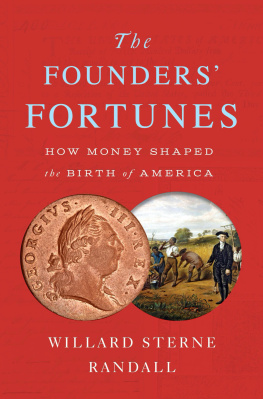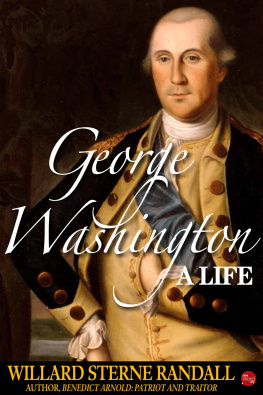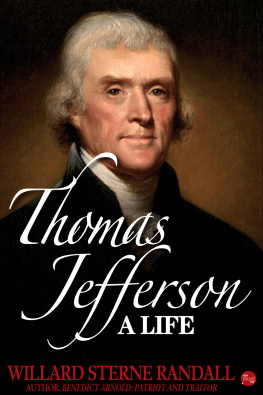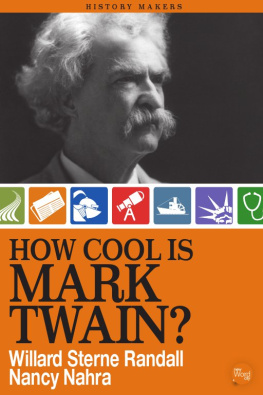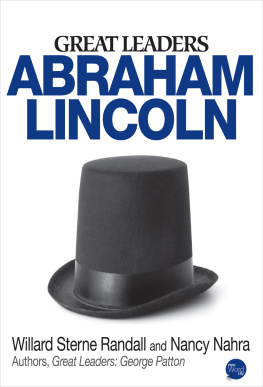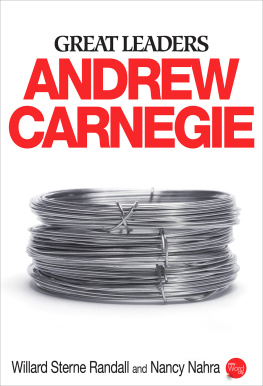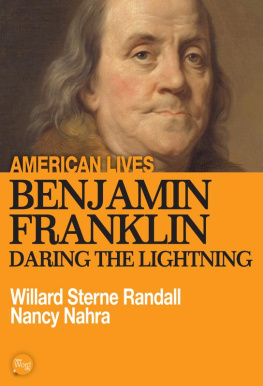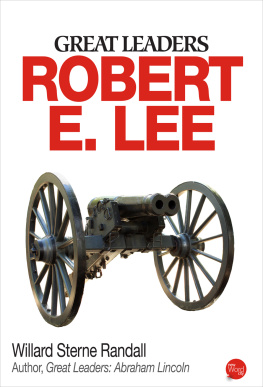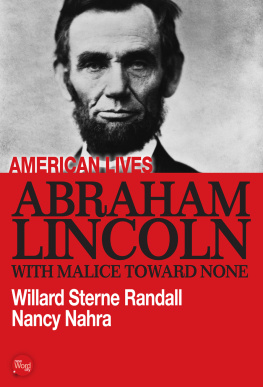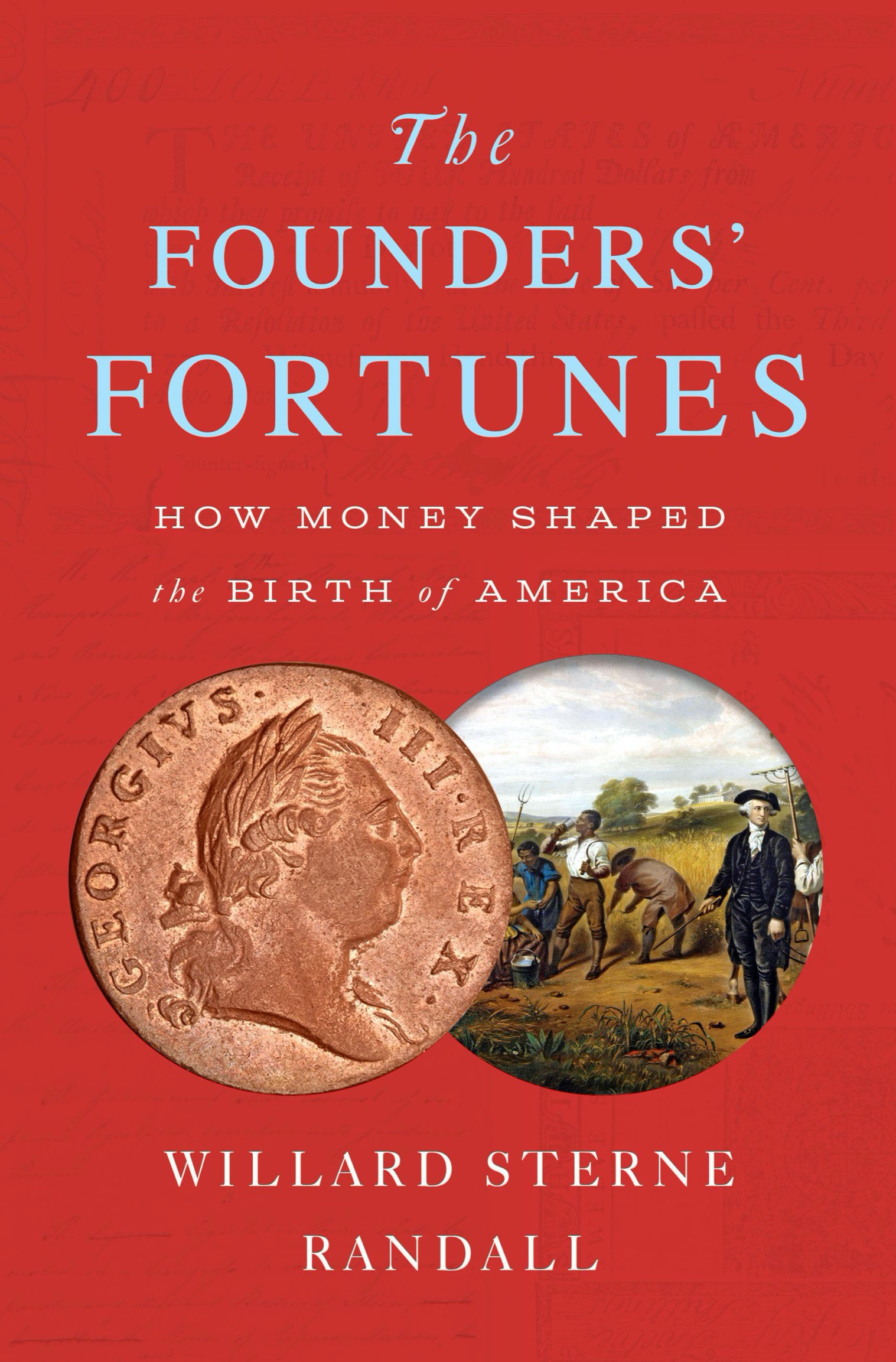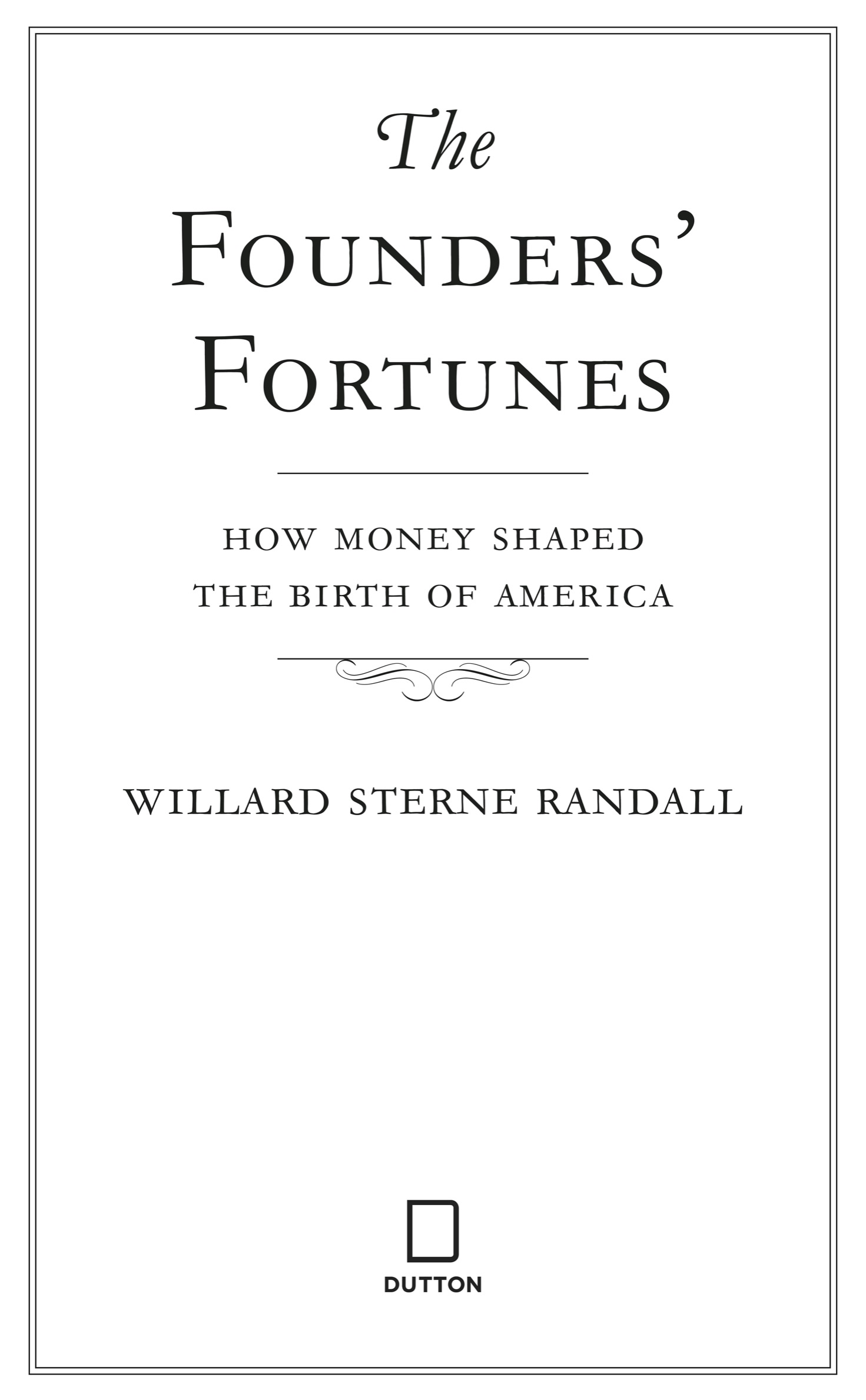Also by Willard Sterne Randall
Unshackling America: How the War of 1812 Truly Ended the American Revolution
Ethan Allen: His Life and Times
Alexander Hamilton: A Life
George Washington: A Life
Thomas Jefferson: A Life
Benedict Arnold: Patriot and Traitor
A Little Revenge: Benjamin Franklin and His Son
Building Six: The Tragedy at Bridesburg (with Stephen D. Solomon)
The Founding City (with David R. Boldt)
Thomas Chittendens Town (with Nancy Nahra)
American Lives (with Nancy Nahra)
Forgotten Americans (with Nancy Nahra)

An imprint of Penguin Random House LLC
penguinrandomhouse.com

Copyright 2022 by Willard Sterne Randall
Penguin supports copyright. Copyright fuels creativity, encourages diverse voices, promotes free speech, and creates a vibrant culture. Thank you for buying an authorized edition of this book and for complying with copyright laws by not reproducing, scanning, or distributing any part of it in any form without permission. You are supporting writers and allowing Penguin to continue to publish books for every reader.
DUTTON and the D colophon are registered trademarks of Penguin Random House LLC.
library of congress cataloging-in-publication data
has been applied for.
ISBN 9781524745929 (hardcover)
ISBN 9781524745943 (ebook)
Cover design by Evan Gaffney
Cover images: [painting] Washington the Farmer. Stearns, Junius Brutus. 1853. (Photo Photo Josse / Bridgeman Images); [coin] 1773, Halfpenny, Virginia Halfpennies, KM-Tn25.2f(2013), United States (American Numismatic Association); [background] Excerpt of the first draft of the Constitution of the United States, 1787 (Photo Boltin Picture Library / Bridgeman Images)
While the author has made every effort to provide accurate telephone numbers, internet addresses, and other contact information at the time of publication, neither the publisher nor the author assumes any responsibility for errors or for changes that occur after publication. Further, the publisher does not have any control over and does not assume any responsibility for author or third-party websites or their content.
pid_prh_6.0_139134522_c0_r0
To Nancy and Lucy
Contents
Prologue
As he prepared to leave Mount Vernon in April 1789 to journey to his inauguration in New York City, George Washington dashed off letters to his closest friends and relatives. Washington had not sought the presidency. After thirty-five years of intermittent warfare, he preferred to live and die on [his] own plantation.
Like many Americans half a dozen years after the war, Washington was scraping by financially. For his eight years as commander in chief of the Continental Army, he had received neither salary nor pension, only reimbursement for well-documented expenses. He had been forced to neglect his farms, the principal source of his income. In all, the war had diminished Washingtons net worth by half, and he had met with little success in recouping his fortune. Britains high-handed postwar restrictions on American trade had eliminated the primary Caribbean markets for Washingtons crops, while prewar Mediterranean markets for his wheat were falling prey to North African privateers. A postwar depression had dried up cash and credit nationwide. Some tenants on Washingtons frontier farms could no longer pay their rent, forcing him to take them to court and evict them.
To George Augustine Washington, his favorite nephew, Washington confided, Necessity, if this [election] had not happened, would have forced me into [frugality], as my means are not adequate to the expense at which I have lived since my retirement to what is called private life. Once inaugurated, he would receive a yearly salary of $25,000 (approximately $750,000 today), the highest in the United States at the time. Clearly, George Washington needed the job.
In that era of unparalleled change, Washington, like the other Founders of the new republic, made major decisions that were influenced by his personal financial circumstances.
In 1776, as they lined up in Philadelphia to sign the Declaration of Independence, the Founders attested quite literally to its final words: We pledge our lives, our fortunes and our sacred honor. forfeiting their fortunes and their lives, probably in the gruesome execution ritual the English reserved for traitors: hanging, drawing, and quartering.
But what exactly were their fortunes? What impact would they have on critical political decisions and the formative policies of incipient institutions? What, if any, were the lingering consequences? By examining the financial affairs of the Founders and the unprecedented decisions they made to shape a new nation, this book attempts to answer these important, timely, and virtually unexplored questions, making the Founders finances much more evident while explaining that, well aware of the high stakes, they did not necessarily expect commensurate rewards.
A little over a century ago, Columbia University professor Charles A. Beard rocked the foundations of normally staid and hagiographic American history by rejecting what he called the juristic theory of the origin and nature of the Constitution.
Able to draw on only the sparse records of individual states under the short-lived Confederation available to scholars in the early twentieth century, Beard published his study far before the availability of the voluminous personal papers and government documents that have since surfaced that have a bearing on the Founders and their influence on the foundation and policies of the new republic. In this book, I seek to update Professor Beards famous hypothesis by providing a deeper understanding of the financial lives of the Founders, of their interests, and of what acted as the drivers of their decisions.
In our own time of intense public interest in the effects of personal wealth on the nations governance, this book investigates and describes the extent and the impact of private finances on the founding generation of the nations leaders, shedding new light on why and how the Revolution took place; how individual Founders, reacting to provocative British laws and policies, forged diffuse alliances of contending business interests based at least in part on their financial circumstances; and how and why the leaders of the newly united states opted for a federal Constitution more conservative than the Articles of Confederation.
This book shows how the Founders shifted allegiances as revolutionary ideology evolved in the tempestuous postwar decades and as they struggled to transform their theoretical debates into a practicable form of government.
During this critical period of breaking away from Britain, key moments of decision-makingover war and peace, trade and taxationreveal how contesting individuals drew on their personal experiences, with their changing financial circumstances driving the formulation of new laws and institutions.

